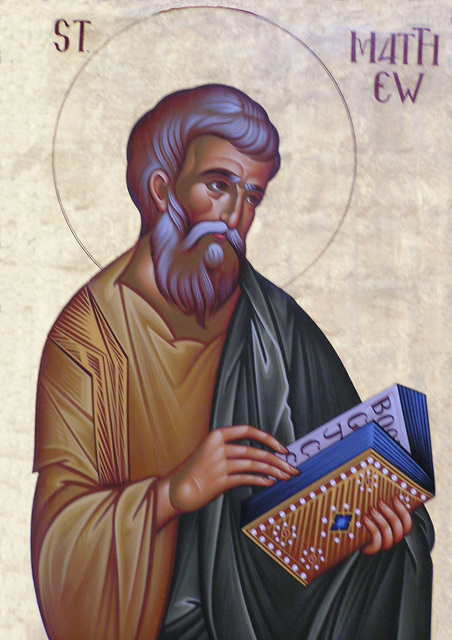The “Magi [μάγοι]” are unique to Matthew’s gospel and fit awkwardly in
the story. Nearly everything that occurs in Matthew’s infancy narrative is
described as the fulfillment of prophecy (Mt 1.23; 2.6, 15, 18, 23). Even
minute details, such as the escape to Egypt or settling in Nazareth, are
fulfilled prophecy. Shockingly, the one exception to this fulfillment theme is
the conspicuous Magi. Surely, Matthew’s creative exegesis could have made use
of Isaiah 18.7, Isaiah 56.6-8, or Ps 72.10-11.
Or why not Isaiah 60.4-6, a text that mentions foreigners carrying “gold”
and “frankincense” to Jerusalem in celebration of God’s glory dwelling in
Israel? Yet Matthew’s Magi are not depicted as fulfilling prophecy. Matthew surely
knew these texts for he cites Isa 56.7 later in his gospel (Mt 21.13). Why,
then, are these significant characters uniquely not portrayed fulfilling prophecy?
Perhaps Matthew intends an oblique allusion hoping his readers will make the
connection? Maybe he hopes to focus his hearers’ attention on Jesus as Israel’s
Messiah?
There are not many
interesting textual variants in Matthew 2-3, save one. When Jesus comes out of
the Jordan River, Matthew 3.17 reads, “And behold a voice from heaven saying, ‘This is my beloved son, in whom I am
pleased.” Codex Bezea, a fifth century western text reads otherwise, “And
behold a voice from heaven saying to him
[προς αυτον], ‘You are [συ ει] my beloved son,
in whom I am pleased.” The Western text turns Matthew’s public announcement into
a personal message directed explicitly to Jesus. This reading is also found in
synoptic parallels (Mk 1.11; Lk 3.22) which both read, “you are [σὺ εἶ] my son.”
All three texts allude to the LXX Ps 2.7, an enthronement song of David that
reads, “The Lord said to me, ‘You are
[εἶ σύ] my son, today I have begotten you.’” This variant is
possibly an attempt at harmonization with both the other gospels and Psalm 2. The
allusion to Psalm 2 is also an interesting example of an instance where Matthew chose
not to exploit an OT text for his fulfillment theme. It is curious to attempt
to follow Matthew’s logic in applying the fulfillment theme.

No comments:
Post a Comment